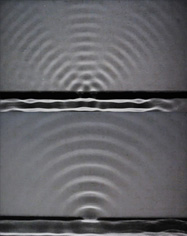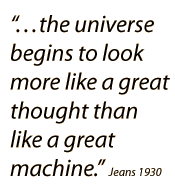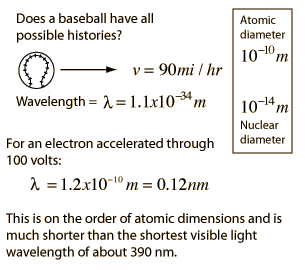Something can be created from nothing
One of the presumptions of The Grand Design is that something can be created from nothing.
In mind of the line from the movie "The Sound of Music": "Nothing comes from nothing, nothing ever could", we know that it is a foundational assumption of human thought that everything has a cause. And if you define a perfect vacuum in space as nothing, then it seems a compelling presumption that this vacuum could not produce anything.
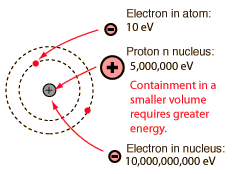 | But such a perfect vacuum may not exist. One of the foundations of quantum theory is the Heisenberg uncertainty principle. It begins to be of profound importance to our understanding of nature at the atomic scale and below. One of the most direct implications is that it requires a larger amount of confinement energy to contain a particle in a smaller volume. If you compare the confinement energy for an electron in an atom to the energy required to hold it in a nucleus, you find that you can't hold an electron in a nucleus. |
If you envision trying to trap a particle into a smaller and smaller volume, you find that the confinement energy becomes so great that the system is unstable with respect to pair production of various particle-antiparticle pairs such as electrons and positrons. If you put enough energy into a system, it can produce particle-antiparticle pairs in accordance with the Einstein equation E=mc2. | 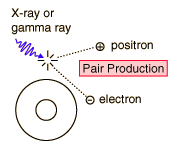 |
 | So particle-antiparticle pairs can be created from "nothing", that is from no particles to two particles, but energy must be provided, so these particles can be viewed as having been created from the energy. And that required energy is not "nothing", so a vacuum that produced particles would nevertheless require available energy to convert into the particles. |
Grand Design
References
